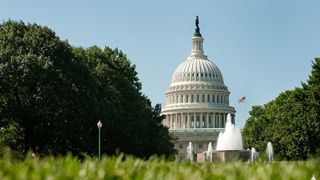Bennett: Save the Internet Act Has it All Wrong

"The U.S. is stuck in a chicken-and-egg mode with Internet regulation," said Richard Bennett, founder of High Tech Forum in a blog in advance of Tuesday's (April 9) expected House floor debate on the Save the Internet Act.
That bill would restore the 2015 Open Internet Order's Title II-based rules against blocking, throttling and paid prioritization and the general conduct standard meant to get at non-neutral ISP practices that don't fall under any of those prohibitions.
Bennett, a VoIP and WiFi standards pioneer and no fan of the 2015 order, said Congress is supposed to set the policies and regulators enforce them. "When the FCC creates regulations out of whole cloth and Congress then puts these inventions into law verbatim, we're not doing things the right way," he said.
He has big problems with the general conduct standard, which he suggests "massively violates" the law (the Administrative Procedure Act) that governs how regulators can regulate.
"[T]he rule-making process in the APA is supposed to ensure that firms know what the rules are," he says. "A rule that says the regulator can sanction firms for conduct that doesn't violate any known rules runs counter to the expectation of certainty the APA creates. This is like Congress saying 'we will punish you for doing things we don't like but we're not going to tell you what those things are,' a rudely passive-aggressive recipe for confusion."
Bennett found the presumptive ban on paid prioritization the "most troubling" part of the FCC's 2015 Open Internet order because it was based in a false premise .
ISPs complained that the standard was both vague and expansive, and that it discouraged innovative business models for fear of running afoul of it, a recipe for regulatory uncertainty that chilled investment and innovation.
Broadcasting & Cable Newsletter
The smarter way to stay on top of broadcasting and cable industry. Sign up below
Bennett said the Save the Internet Act must not pass. "As Carl Sagan said in his last interview: '[W]e've arranged a society based on science and technology in which nobody understands anything about science and technology, and this combustible mixture of ignorance and power, sooner or later, is going to blow up in our faces.' It's reasonably clear that Internet regulation is now blowing up in our faces."
Contributing editor John Eggerton has been an editor and/or writer on media regulation, legislation and policy for over four decades, including covering the FCC, FTC, Congress, the major media trade associations, and the federal courts. In addition to Multichannel News and Broadcasting + Cable, his work has appeared in Radio World, TV Technology, TV Fax, This Week in Consumer Electronics, Variety and the Encyclopedia Britannica.

